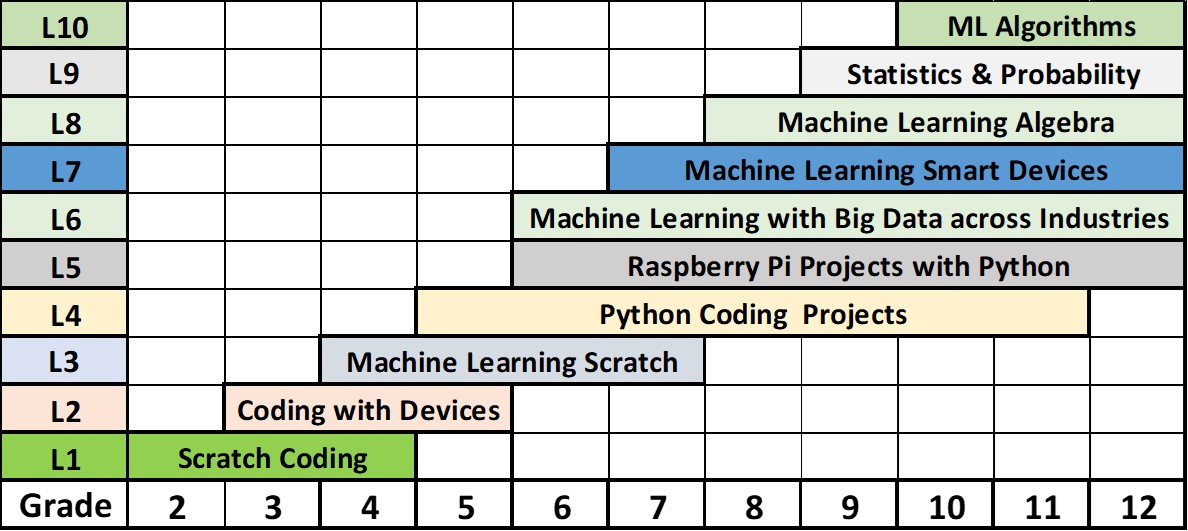
Machine Learning Projects for Kids
AICODE101 is proud to present well-structured projects on Scratch coding, Electronics, Machine Learning in Scratch, Python, and Machine Learning in Python, in which students will have opportunities to learn advanced coding techniques, design games, and create interactive projects and stories. The machine learning technology is powered by IBM Watson AI System and Google TensorFlow. Students will learn how to create both rule-based models and data-based machine learning approaches. Why Machine Learning For Kids?
We work with local schools to offer after school classes, which are typically held 3:00–6:00 p.m. Monday through Friday. Hours are flexible. Please check with your schools:

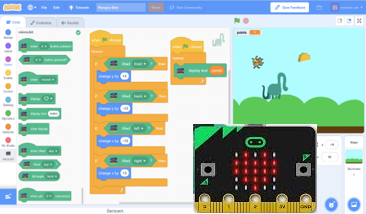
Scratch is the most popular block-based coding for kids from MIT. This course contains introduction of Scratch coding, 9 Scratch projects, and one final project at each student’s choice. Students will be asked to present their projects in the last day.
Our projects focus on building logical and computational thinking from which students will learn the foundations of data structures, algorithms, and game design. Students will also have opportunity to tackle complex Scratch projects that can build solid coding foundations for machine learning.
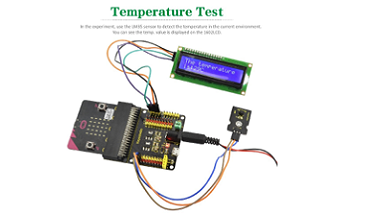
This course contains advanced MakeCode projects interacting with Micro.bit, along with some common sensors such as digital LED module, analog temperature sensor, photocell sensor, ultrasonic module etc. Students will have opportunities to learn a few interesting projects like traffic light, magnetic check, temperature test, joystick test, photo-interrupter test and so on. Students will be asked to create their final project at their choice to present in the last day. Potential projects will be recommended to compete in The micro:bit Global Challenge competition and top students will be encouraged to participate the American Computer Science League.
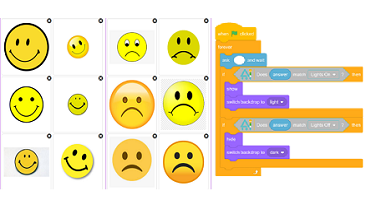
Students will have hands-on experiences for training machine learning systems and building things with them, by creating projects and games with Scratch using text, image, or sound recognition, such as smart home, virtual pets, chatbots, emotion recognition and maze game. They will compare the logics and results of two different approaches to have a solid understanding on the difference between rule-based and data-based models. Our machine learning projects will display what is machine learning, what is the concept of big data and how they work with classification and regressions.
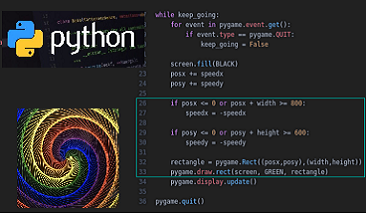
Python is the most popular programming language for software engineering, data science, machine learning and AI. Students will learn the core fundamentals of Python on the usage of variables, loops, branching, etc., as well as learn to use additional libraries to expand their skill set. Two additional libraries taught within this course are Turtle and Pygame, which will be used to create graphical and interactive programs and games. Learning Python greatly enhances students’ abilities to think critically and programmatically. Upon graduation, top students will be encouraged to participate in the American Computer Science League.
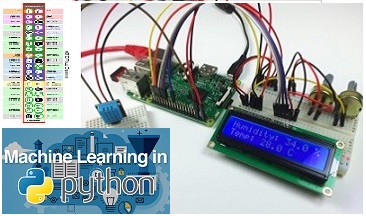
Raspberry Pi is a low cost, credit-card sized computer that plugs into a computer monitor and uses a standard keyboard and mouse. It is a capable little device that enables people of all ages to explore computing, and to learn how to program in languages like Scratch and Python. It’s capable of doing everything you’d expect a desktop computer to do. Students will learn how to code to use various electronic modules like IP sensor, Ultrasonic sensor, Servo, Motor, Photoresistor, Joystick and WebIOPi/IoT, etc.
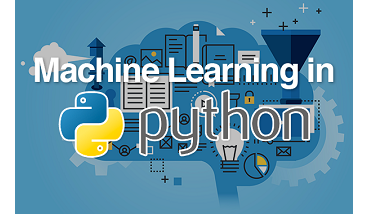
Students will have the opportunity to handle real world data from various industries and other agencies to train machine learning systems and build advanced applications, like Cancer Diagnosis using image recognition, Stock Market Prediction, Handwritten Digit Classification, NBA Draft Pick. Machine learning methodologies will enhance students’ learning skills for their other subjects.
HTML Generator